“It is hard to work when you are asking yourself how to feed your own children”
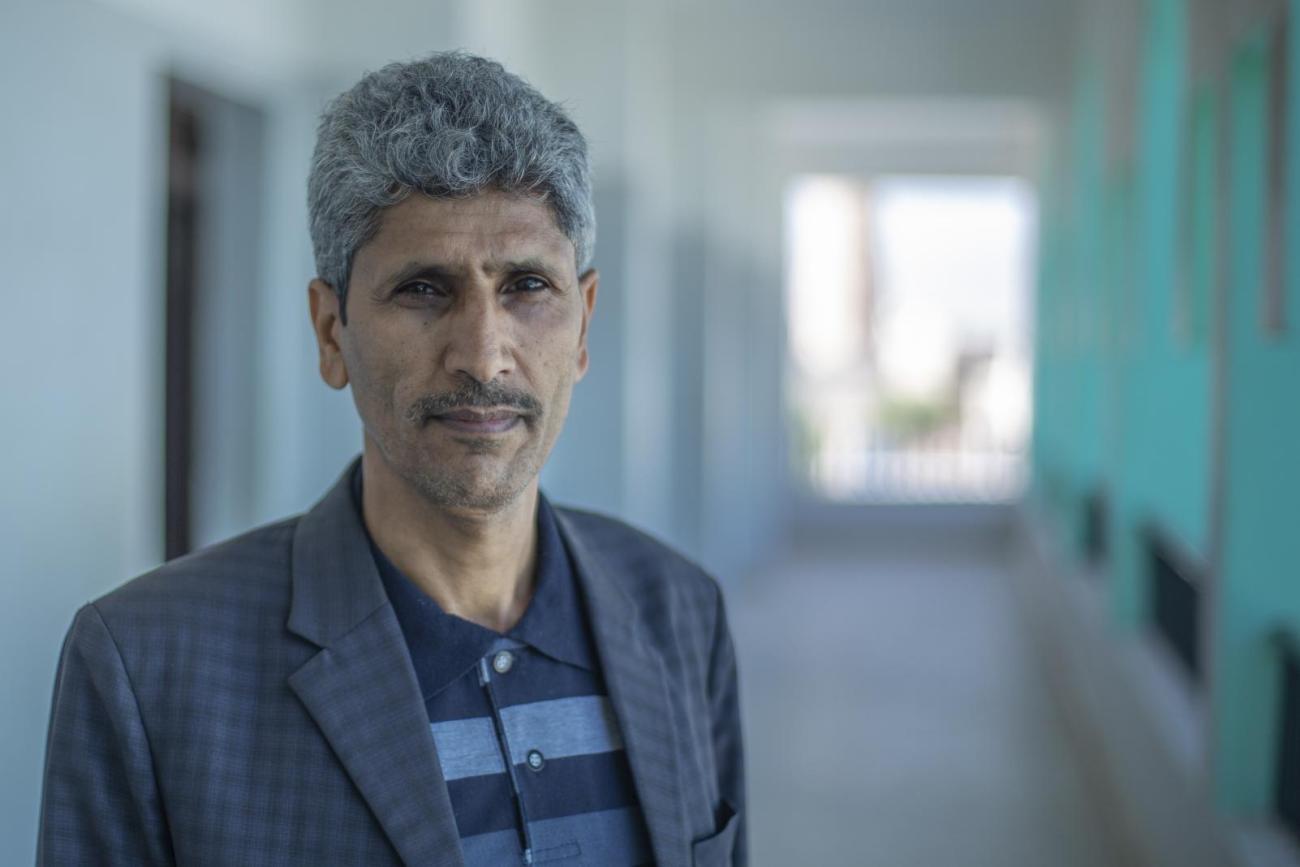
Hamoud is a chemistry teacher in Sana’a. Thanks to UNICEF Cash Incentives Project, his students are still given a chance to education.
“It is difficult for a teacher to do his work and pass on his knowledge to students that don’t have anything else than a piece of bread to eat,” says the teacher Hamoud Hassan Qaed when asked about the main challenges in his profession. “And I cannot teach them properly if I have to walk two hours every day from my home to the school and back because I don’t have money to pay for transportation,” Hamoud continues. “Sometimes, I have to make an impossible choice between buying breakfast for my children or use the money to pay for transportation to school,” says Hamoud.
Hamoud is a chemistry teacher at Al-Mokhtar High School in Sana’a. He is 47 years old and a father of eight children. He has been working in the education sector for the past 18 years. However, he is forced to look for other jobs in the last three years since he is not receiving his public servant salary anymore.
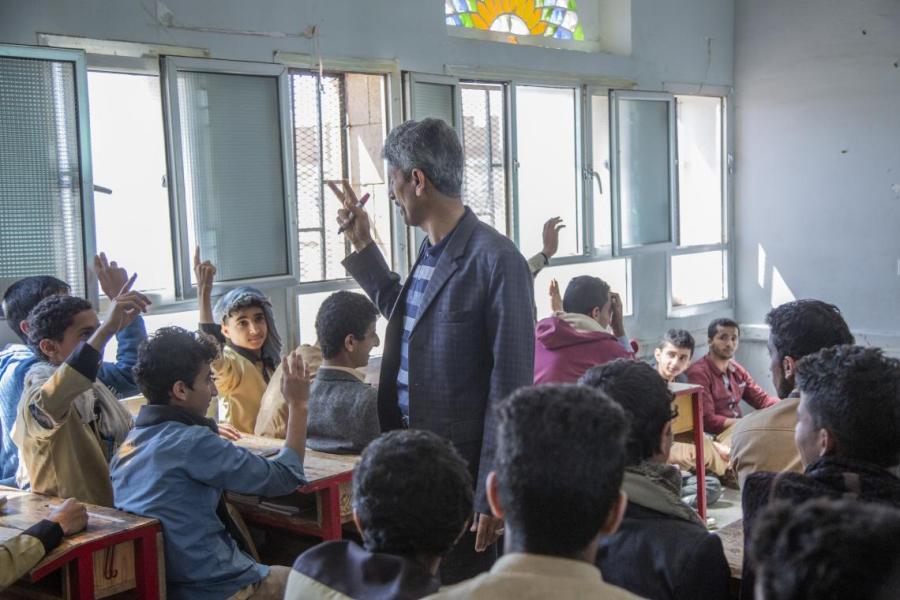
“What do we expect from teachers who haven’t received their monthly payment for three years?” Hamoud asks himself. “We count the days, the months, the years waiting for a glimmer of hope to be able to withstand more. But it is hard to work when we are busy asking ourselves how to feed our own children,” he says.
When he heard about the UNICEF-supported conditional cash assistance project for school- based staff and teachers, Hamoud regained some hope. “The incentive isn’t more than US$ 50, which is not enough to pay my rent or provide daily meals to my children for a month, but it will raise the moral of teachers and reflect positively on the quality of education,” acknowledges Hamoud. “In my case, I will use this money to pay for transportation instead of walking to school every morning,” says Hamoud, hoping that the situation will get better.
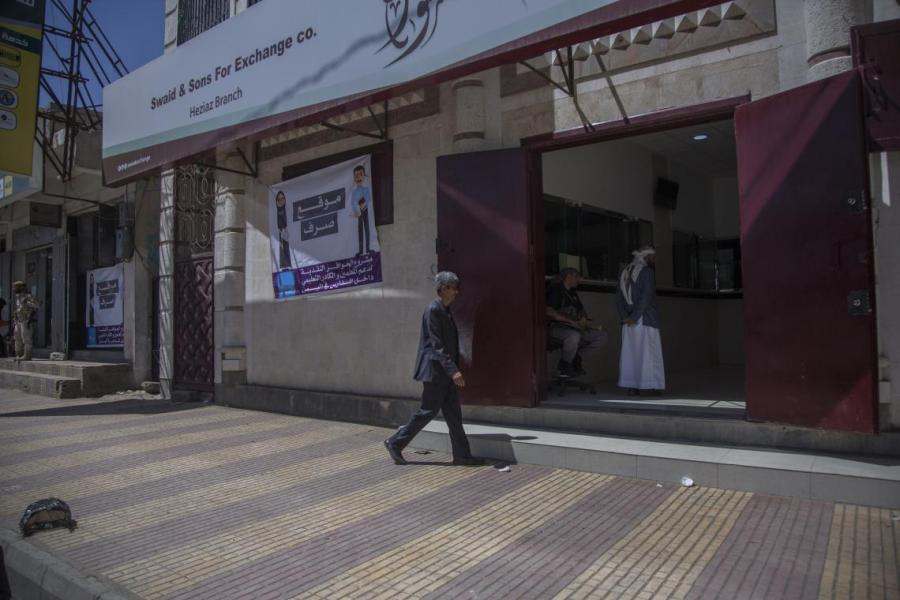
Hamoud still believes that teaching is a sacred profession despite the difficult living conditions. And the last years have been particularly painful. On his way back from school, Hamoud looks for houses under construction so he can find some part-time work in the afternoon. He never had to look for other jobs to survive in the past because his salary was enough to sustain his family’s needs. He never had to borrow money either but since he hasn’t been able to pay his rent regularly, Hamoud had to sell his wife’s jewelry to keep a roof over his children’s heads.
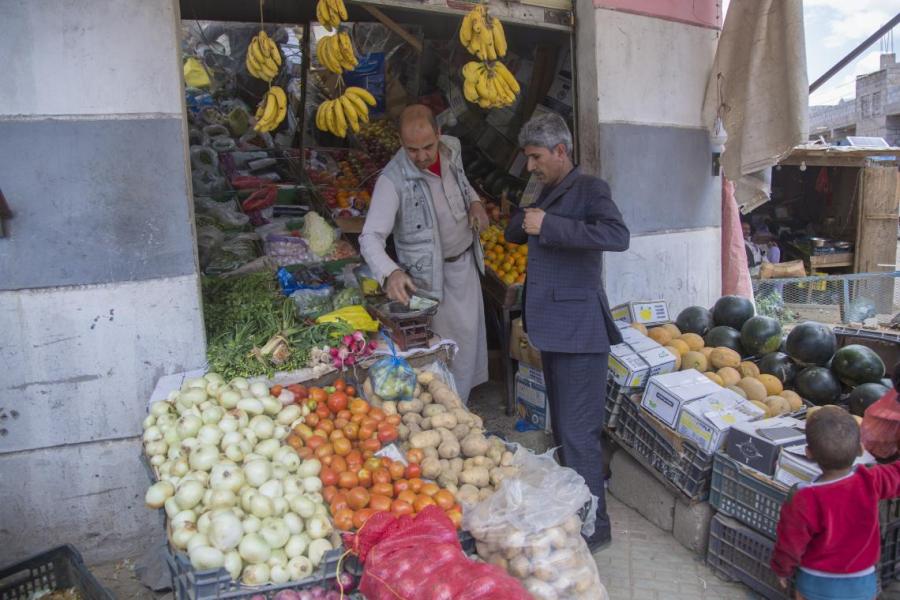
The money he got from selling his wife’s rings lasted some weeks and Hamoud fast ran out of money again and had to sell the gas cylinder his wife was using for cooking in order to buy food for his children. “All the teachers are suffering. Some of my colleagues beg for money and they now go outside their houses with their faces covered out of shame,” Hamoud sadly tells. “I want the war to end to be able to live peacefully, receive monthly salaries and being appreciated again as a teacher.”
“I hope our students forgive us. We don’t want them to be deprived of education but it’s because of the current circumstances that we cannot teach in the best conditions,” says teacher Hamoud, wiping off tears from his eyes.
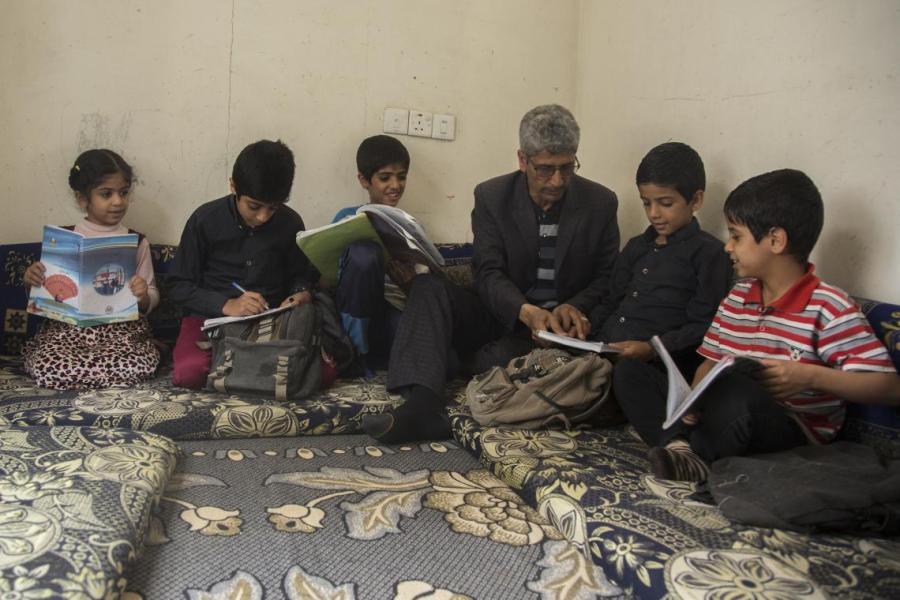
In Yemen, UNICEF is supporting the teachers so that conflict-affected children can still have a chance to education, thanks to the support of Education Cannot Wait, the Kingdom of Saudi Arabia and the United Arab Emirates.

